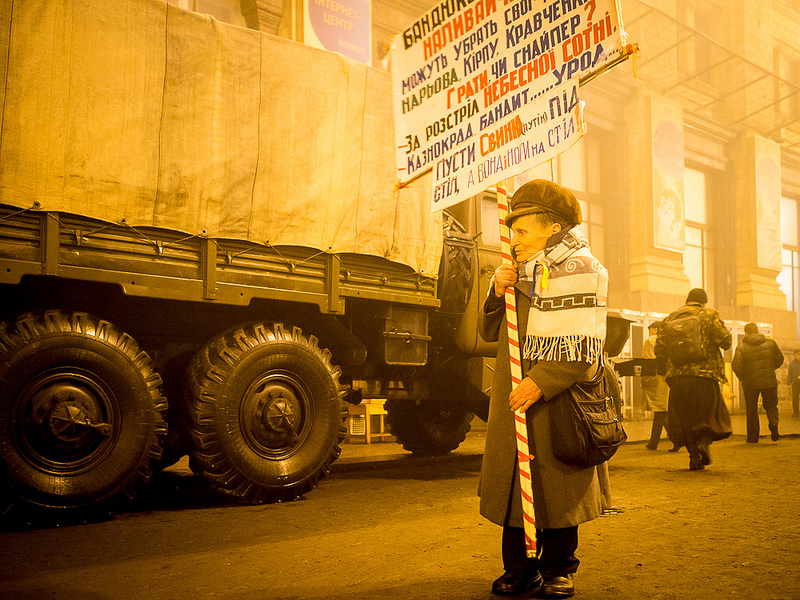
Protests in Ukraine // Photo: streetwrk.com, Flickr
The Star: Russia’s actions in Crimea are completely illegal
Faculty of Law Professor Umut Özsu wrote an opinion-editorial for the Toronto Star newspaper. It reads:
Russia’s incursion into Crimea, a constituent part of Ukraine with considerable political and economic importance, has once again brought the issue of aggression under international law to the forefront of world affairs. Yet appreciation of the international law governing the use of force is not widespread, and arguments about the legal implications of Russia’s actions are often superficial.
The international law governing the use of force turns on the interpretation and application of Articles 2(4) and 51 of the United Nations Charter, the cornerstone of modern international law.
Article 2(4) prohibits the threat or use of force against any state’s territorial integrity and political independence. One of the most important provisions of the Charter, Article 2(4) outlaws aggression and is designed to ensure that state sovereignty is respected.
Article 51 allows for an important exception to this general prohibition. The exception concerns cases of individual or collective self-defense on the part of UN member states. If a UN member state is subject to an armed attack, it may exercise its right of self-defence even before the UN Security Council, acting under Chapter VII of the Charter, has taken actions to maintain international peace and security.
Almost all international lawyers regard Russia’s invasion of Crimea as unlawful. The few lawyers who defend the invasion typically attempt to develop arguments on the basis of the Article 51 exception. The difficulty with such arguments is that it is exceedingly difficult to marshal evidence that Russia has been subject to an armed attack (or that its nationals have been threatened).
Similarly, ancillary arguments to the effect that Russia is engaged in humanitarian intervention or that it was “invited” to intervene by Viktor Yanukovych, Ukraine’s ousted president, are essentially spurious. There is no legal basis for undertaking humanitarian intervention without authorization from the Security Council, and Yanukovych no longer wields effective authority in Ukraine.
Russia has long maintained a significant naval presence in the Black Sea. Indeed, Russian naval forces have been stationed in Crimea for centuries. Putin’s administration may also have legitimate concerns with respect to the treatment of ethnic Russians in an increasingly volatile and polarized Ukraine. The unelected government currently in control of Kiev includes hardline Ukrainian nationalists who are anything but sympathetic to ethnic Russians.
Still, Russia’s decision to deploy troops in Crimea constitutes a direct and flagrant violation of international law. The continued presence of large numbers of Russian troops in Crimea contravenes the Article 2(4) prohibition on the threat or use of force. Were it not for the fact that Russia is a permanent member of the Security Council, with the power to veto its resolutions, that body might well already have denounced the invasion as illegal.
Crimea has long served as an object of competition and a laboratory for state-building. Russia established its authority over the peninsula in the late 18th century, annexing a Crimean state that had until then been affiliated with the Ottoman Empire. The region figured centrally in a number of wars during the 19th century, most prominently the 1853-56 Crimean War.
Before, during, and after the Second World War, Stalin deported and massacred large numbers of Tatars and other non-Russian inhabitants of Crimea. The peninsula’s legal status was the subject of considerable wrangling in the aftermath of the Cold War, particularly since it is home to large naval bases and more than half of its population is now ethnically Russian.
If Crimea and other portions of Ukraine are to become the focal points of a new conflict, or a significant heightening of geopolitical tension, it is of critical importance to understand that Russia’s actions are strictly unlawful.







Was the US´s actions in Iraq and Afghanistan legal?